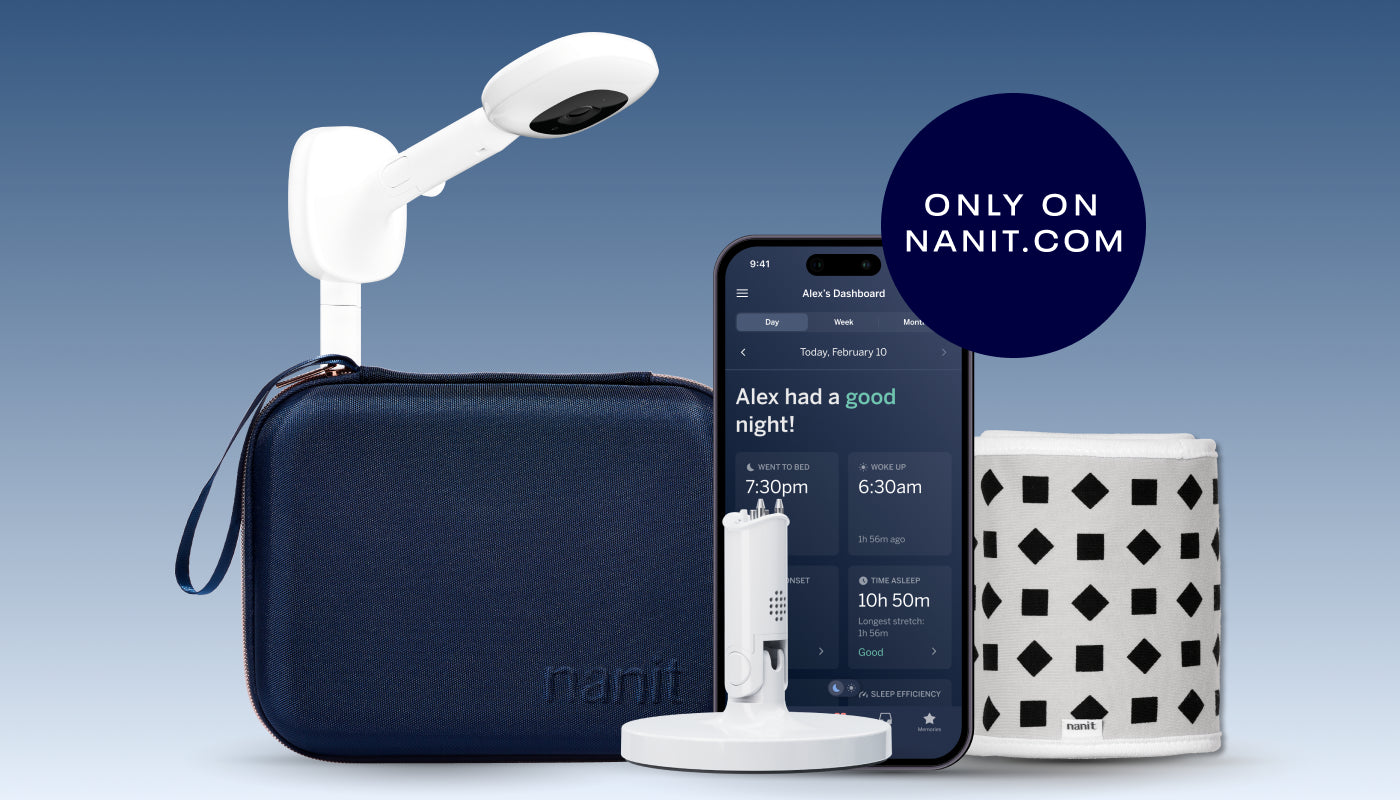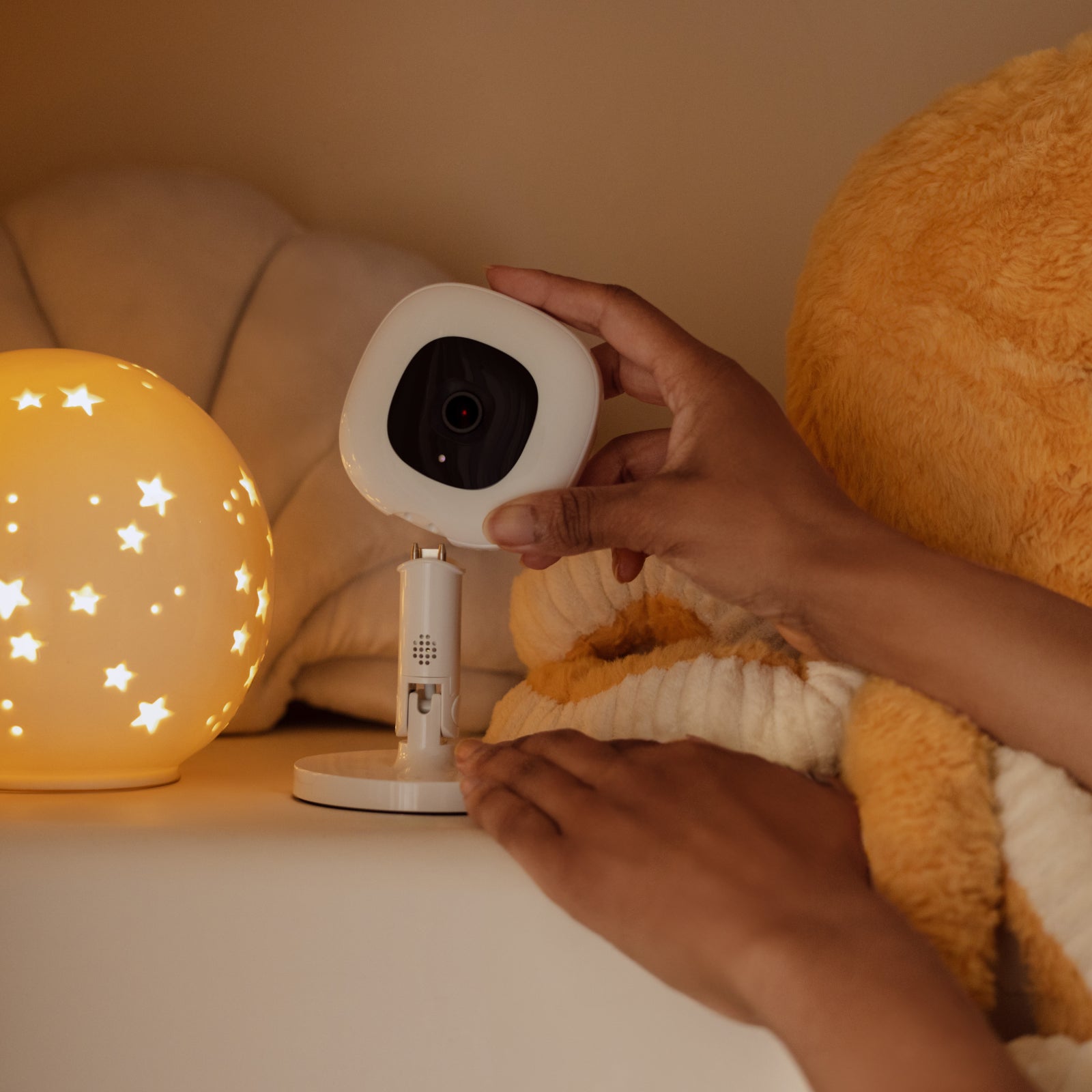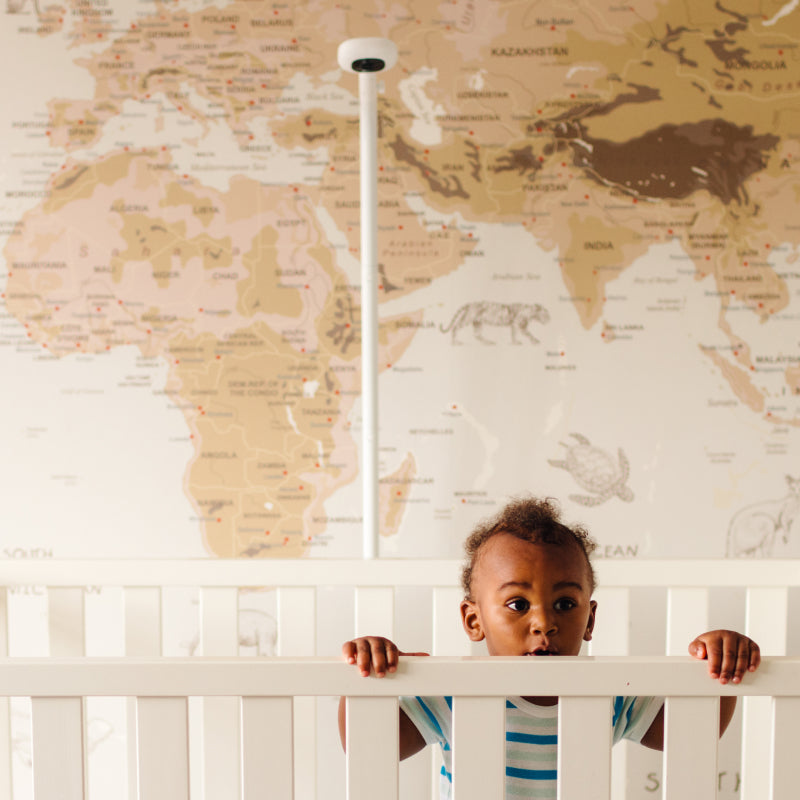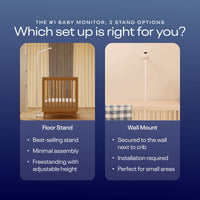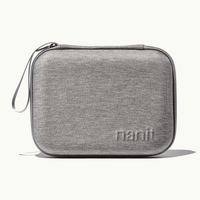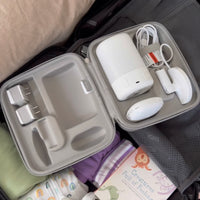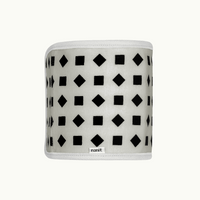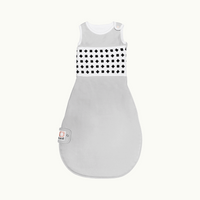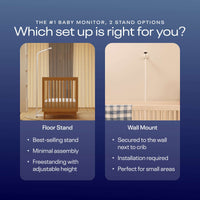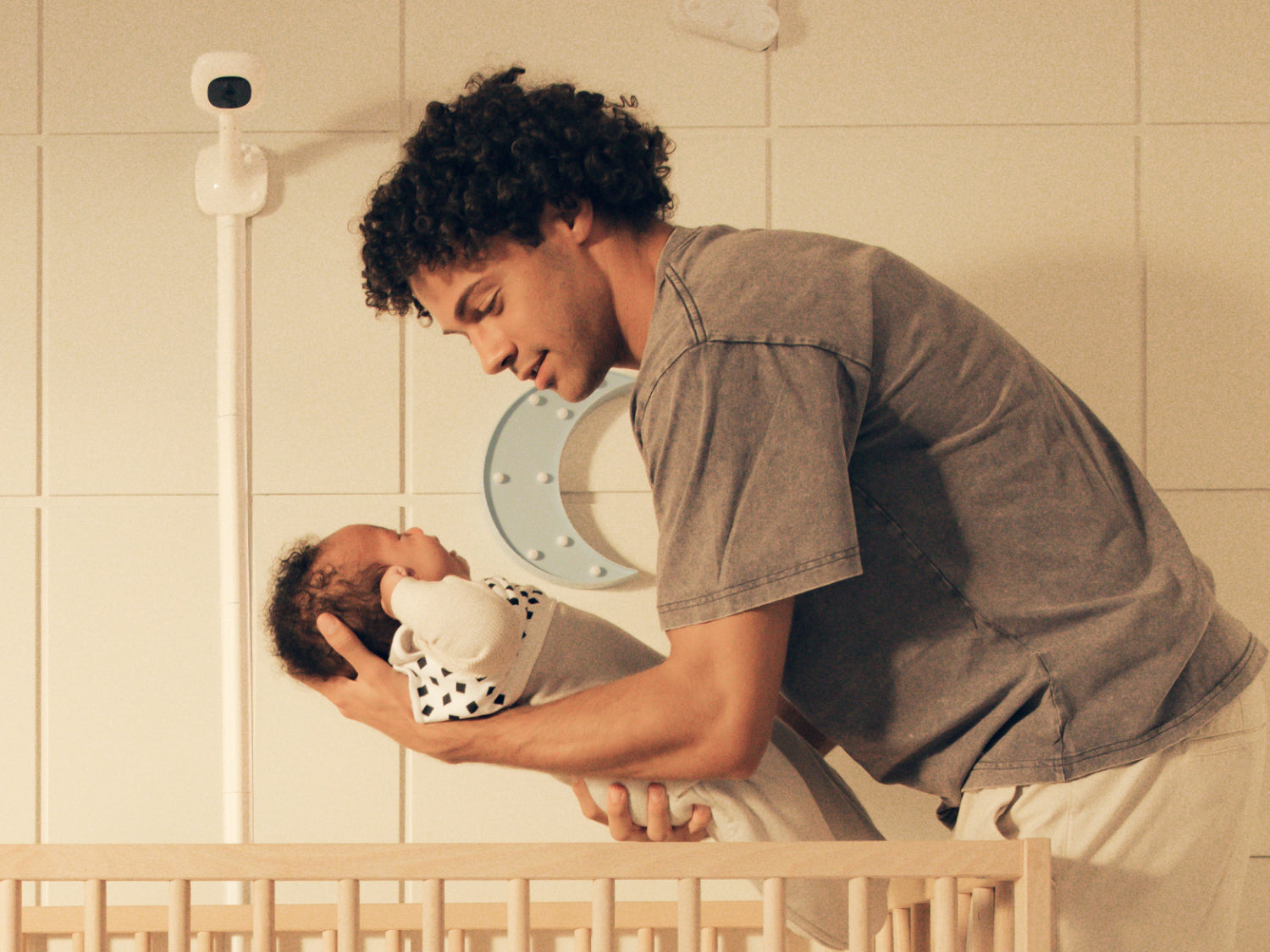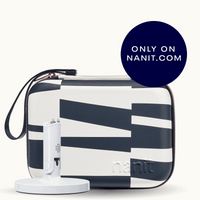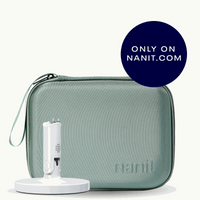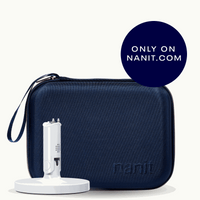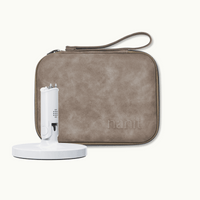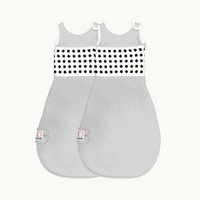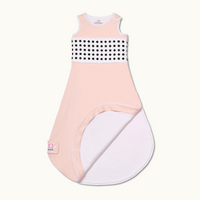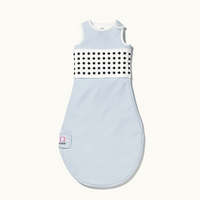Welcome to what’s basically the sweet spot of pregnancy — 16 weeks! If you’ve been waiting for that mythical “golden period” everyone talks about, you’re officially here. This exciting pregnancy milestone marks the beginning of your second trimester, and is typically a time when many uncomfortable pregnancy symptoms from the first trimester begin to fade, your energy starts to return, and you may start feeling your baby's first movements. You’re hopefully experiencing better sleep, renewed vitality, and growing excitement as your fetal development reaches exciting new stages.
This is a pivotal moment in your pregnancy journey — your baby's fetal development has progressed significantly, and you may be preparing for your upcoming anatomy scan, potentially learning your baby's gender, and beginning serious nursery planning. Read on to learn more about making the most of this exciting phase while preparing for your baby's arrival.
Your Baby at 16 Weeks Pregnant
Your little one is now about the size of an avocado — roughly 4.6 inches long and weighing about 3.5 ounces. But here's what's really cool: they're not just growing, they're getting coordinated. Your baby can now move their arms and legs together, make facial expressions, and hold their head up straighter.
Key Fetal Development Milestones at 16 Weeks Pregnant:
-
Coordinated movements: Your baby can now coordinate arm and leg movements
-
Facial expressions: Tiny facial muscles allow for squinting, frowning, and grimacing
-
Head positioning: Your baby can hold their head straighter and more erect
-
Skeletal development: Bones continue hardening, especially in the head and limbs
-
Circulatory system: Heart pumps about 25 quarts of blood daily
-
Nervous system function: Nervous system is beginning to control body functions
-
Urinary system: Kidneys are producing urine every 45 minutes
-
Hair and nail growth: Fine hair (lanugo) covers the body, nails are growing
The really exciting part? Your baby is becoming way more active. They might be sucking their thumb, playing with the umbilical cord, or even getting the hiccups. You might not feel these movements yet, but they're happening regularly and they're a great sign that development is right on track.
💡 Nanit Expert Insight
“Around 16 weeks, your baby's brain is beginning to coordinate movements, heart rate, and breathing, an important foundation for healthy sleep patterns later on.” - Maristella Lucchini, PhD., Senior Clinical Researcher at Nanit
Feeling Your Baby’s First Movements
One of the most anticipated parts of being 16 weeks pregnant is feeling your baby's first movements, also known as quickening. While first-time parents typically feel baby movement between 18-20 weeks, some may experience these magical flutters as early as 16 weeks, especially if this isn't your first pregnancy. These initial movements are often described as butterfly flutters, gas bubbles, or like gentle popcorn popping.
What early Baby Movement feels like:
-
Subtle sensations: First movements may feel like gentle flutters or bubbles
-
Timing variations: First-time parents may not feel movement until 18-20 weeks
-
Position factors: Placental position can affect when you feel movements
-
Individual differences: Every pregnancy is unique in terms of movement timing
-
Intermittent patterns: Early movements come and go unpredictably
-
Recognition development: You'll gradually learn to distinguish baby movements from other sensations
Don't worry if you're not feeling anything yet. Lots of factors affect when you'll feel movement—your placenta's position, whether this is your first pregnancy, and just individual differences. Some people don't feel anything until 20+ weeks, and that's completely normal.
The anticipation of feeling your baby move adds so much excitement to this stage. Even if you can't feel it yet, knowing your baby is actively moving around and developing helps make this whole thing feel more real. This is also a great time to start talking to your baby — their hearing is developing rapidly.
Thriving in Your Second Trimester: Pregnancy Symptoms at 16 Weeks Pregnant
Here's why 16 weeks pregnant is part of that golden period — you're probably feeling way better than you have in months. The brutal first trimester pregnancy symptoms have likely faded, and you haven't hit the physical discomforts of the third trimester yet. Your energy has likely returned, and you may be feeling more like yourself again.
Common Pregnancy Symptoms at 16 Weeks Pregnant:
-
Increased energy: Pregnancy energy levels typically improve significantly
-
Reduced nausea: Morning sickness continues to fade for many
-
Growing belly: Your pregnancy bump becomes more noticeable
-
Breast changes: Continued growth and sensitivity, but often less tender
-
Skin changes: Possible appearance of pregnancy glow and skin darkening
-
Nasal congestion: Pregnancy rhinitis may develop due to increased blood flow
-
Round ligament pain: Sharp pains as your uterus expands
Many pregnant people find that they can sleep more soundly during this period, though you may need to start adjusting your sleep position as your belly grows. This is an excellent time to establish healthy sleep habits that will serve you well throughout the remainder of your pregnancy.
Preparing for Your Big Anatomy Scan
When you're 16 weeks pregnant, you're probably scheduling or getting excited about one of pregnancy's biggest moments—the anatomy scan. This detailed ultrasound usually happens between 18-22 weeks and will give you an incredibly thorough look at your baby's development. Plus, if you want to know the gender, this is often when you can find out.
Prenatal Care at 16 Weeks Pregnant:
|
Care Component |
What to Expect |
Preparation Tips |
|
Routine Appointments |
Monthly check-ups with weight, blood pressure, urine tests |
Prepare questions about symptoms and concerns |
|
Anatomy Scan Scheduling |
Schedule comprehensive ultrasound for 18-22 weeks |
Decide if you want to learn baby's gender |
|
Blood Tests |
Additional screening tests may be offered |
Discuss options with your healthcare provider |
|
Lifestyle Guidance |
Exercise, nutrition, and sleep recommendations |
Ask about safe activities and dietary guidelines |
This is also a great time to discuss any concerns about pregnancy sleep, exercise routines, or preparations for your baby's arrival. Your healthcare provider can offer personalized guidance based on your specific needs and pregnancy progression.
Getting Better Sleep in Your Second Trimester
One of the greatest benefits of being 16 weeks pregnant is the improvement in energy levels that many people experience during the second trimester. As nausea subsides and your energy returns, you may find that sleep becomes more restful and restorative. However, as your belly grows, you'll need to start considering sleep positions and comfort strategies.
Pregnancy Sleep Tips for 16 Weeks Pregnant:
-
Side sleeping: Begin transitioning to left-side sleeping for optimal blood flow
-
Pregnancy pillows: Invest in supportive pillows for growing comfort needs
-
Sleep environment: Maintain cool, dark, and quiet sleep conditions
-
Bedtime routine: Establish consistent pre-sleep rituals
-
Exercise timing: Regular activity can improve sleep, but avoid late-day workouts
-
Stress management: Practice relaxation techniques to promote better rest
-
Sleep tracking: Consider monitoring sleep patterns to identify improvements needed
The improved pregnancy sleep quality at 16 weeks pregnant is an excellent opportunity to establish healthy sleep habits that will benefit you throughout pregnancy and into parenthood. Good sleep during pregnancy is linked to better outcomes for both you and your baby, so this is definitely worth focusing on during your second trimester.
Emotional Wellness and at 16 Weeks Pregnant
The emotional experience of being 16 weeks pregnant often brings a sense of relief, excitement, and deeper connection to your growing baby. As pregnancy symptoms improve and your energy returns, many women find this period emotionally rewarding and filled with anticipation for upcoming milestones like feeling baby movement and potentially learning their baby's gender.
Emotional Milestones at 16 Weeks Pregnant:
-
Increased confidence: Reduced miscarriage risk brings peace of mind
-
Excitement building: Anticipation for upcoming anatomy scan
-
Bonding opportunities: Talking to baby and planning for their arrival
-
Social sharing: Comfortable sharing pregnancy news more widely
-
Future planning: Beginning to envision life with baby
-
Body acceptance: Growing appreciation for your changing body
-
Partner bonding: Shared excitement about upcoming milestones
This emotional wellness is enhanced by the physical improvements many people experience during the second trimester. It's a great time to focus on bonding with your baby through gentle prenatal yoga, reading to your bump, or just taking quiet moments to connect with your growing child.
Preparing for Your Baby's Nursery
With your energy back and the exciting prospect of maybe learning your baby's gender soon, 16 weeks pregnant is when many people start to give serious thought to nursery planning. It's fun, it makes everything feel more real, and you've got time to make thoughtful decisions without rushing.
Where to Start With Nursery Planning:
-
Room location and setup: Choose the best room and basic layout
-
Color schemes and themes: Begin considering design preferences
-
Essential furniture: Research cribs, changing tables, and storage solutions
-
Safety considerations: Plan for baby-proofing and safe sleep environment
-
Monitoring systems: Consider baby monitoring technology for peace of mind
-
Lighting and ambiance: Plan for both functional and soothing lighting
-
Budget planning: Establish budget for nursery essentials and nice-to-haves
Creating Your Baby's Environment
You don't need a fully furnished and decorated nursery yet, but it's a great time to start thinking about creating a safe, comfortable environment for your baby. Consider the essentials you'll need and start researching products that will support your baby's development and your peace of mind as a new parent.
Peace of Mind, Delivered in HD
As you prepare for your baby's arrival, consider the Nanit Pro Smart Baby Monitor for tracking your baby's sleep patterns, breathing, and development—giving you peace of mind during those precious early months.
Building Your Baby Registry
Many pregnant people start thinking about their baby registry. If you need some inspo, our comprehensive nursery checklist for newborns can help you understand the essentials you'll need and make informed decisions about products that'll actually be useful.
Focus on quality over quantity, and remember that many items can also be purchased closer to your due date. Prioritize safety essentials, feeding supplies, and items that will help you monitor and care for your baby during those important early months.
Sweet Dreams for the Whole Family
Start thinking about your baby's sleep environment with the Nanit Sound + Light Machine. This smart device helps establish healthy sleep habits from birth with soothing sounds and gentle lighting that can be controlled through your smartphone.
Pro Tip: Start exploring our comprehensive nursery setup guide to understand how to create an optimal sleep environment that supports your baby's development. Consider how monitoring technology will fit into your nursery design early in the planning process.
What’s Next?
The coming weeks will bring new developments, important appointments, and continued preparation for your baby's arrival. Understanding what lies ahead helps you stay organized and make the most of this special time.
Upcoming Pregnancy Milestones to Anticipate:
-
Weeks 18-22: Anatomy scan and potential gender reveal
-
Weeks 18-20: First-time mothers may begin feeling baby movement
-
Weeks 20-24: Continued nursery planning and preparation
-
Weeks 24-28: Glucose screening and third trimester preparation
-
Ongoing: Monthly prenatal care appointments
-
Throughout: Continued focus on pregnancy sleep optimization
Planning ahead while you're 16 weeks pregnant helps ensure you're prepared for each milestone. For more info, check out our guides on baby development tracking and sleep preparation during pregnancy to help you make informed decisions about preparing for your baby's arrival.
Building Your Support Network During the Second Trimester
16 weeks pregnant is an ideal time to strengthen your support network and connect with other expectant parents. Your improved energy and reduced symptoms make this period perfect for building relationships and resources that'll support you throughout pregnancy and into parenthood.
Building Support at 16 Weeks Pregnant:
-
Prenatal classes: Research and enroll in childbirth and parenting classes
-
Mom groups: Connect with local or online expectant parent communities
-
Family support: Discuss roles and expectations with partners and family
-
Healthcare team: Build strong relationships with your prenatal care providers
-
Work planning: Begin discussions about maternity leave and work transitions
-
Resource gathering: Collect reliable parenting and baby care information, like our comprehensive new parent guide
The support network you build while 16 weeks pregnant will be invaluable as you navigate the remainder of your pregnancy and transition into parenthood.
Nutrition and Exercise Focus at 16 Weeks Pregnant
This is also an excellent time to focus on optimal nutrition and safe exercise routines. The second trimester often provides the perfect window for establishing healthy habits that will support both your well-being and your baby's continued fetal development. Regular physical activity can improve sleep, reduce stress, and prepare your body for labor and delivery.
Nutrition and Exercise Guidelines When You’re 16 Weeks Pregnant:
-
Balanced nutrition: Focus on protein, healthy fats, and complex carbohydrates
-
Prenatal vitamins: Continue with folic acid, iron, and calcium supplementation
-
Hydration: Maintain adequate fluid intake to support increased blood volume
-
Safe exercise: Take advantage of your increased energy to engage in moderate activities like walking, swimming, or prenatal yoga
-
Weight monitoring: Aim for steady, appropriate weight gain as recommended
Technology and Monitoring Preparation
As you plan for your baby's arrival while 16 weeks pregnant, consider how technology can support your parenting journey from the very beginning. Early preparation for monitoring and tracking your baby's development can help ensure you're ready to support their health and growth from day one.
The Takeaway
Reaching 16 weeks pregnant marks a wonderful pregnancy milestone that brings you into the rewarding second trimester. This period offers the perfect balance of renewed energy, reduced symptoms, and exciting developments in your baby's growth. As you prepare for upcoming milestones like your anatomy scan, potential baby movement, and nursery planning, remember that every step brings you closer to meeting your little one.
The improvements in sleep and overall well-being that many women experience at 16 weeks pregnant provide an excellent opportunity to focus on preparation and bonding. Whether you're planning your nursery or simply enjoying this "golden period" of pregnancy, trust in your body's incredible ability to nurture and grow your baby. Enjoy this sweet spot of pregnancy — you’ve earned it!
